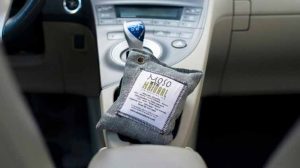While sushi is generally safe for breastfeeding women, some moms are concerned that raw fish can pass harmful bacteria to their babies through breastmilk. In order to minimize this risk, choose a restaurant that uses fresh, high-quality seafood and opt for cooked sushi options.
Cooked salmon, mackerel, trout and tuna are healthy choices that are safe to eat while breastfeeding.
Seafood

Sushi, a traditional Japanese dish made from rice and various ingredients, can be enjoyed safely by breastfeeding women. It is important to avoid raw fish that may contain parasites or bacteria that can cause foodborne illness in nursing mothers. However, sushi made with cooked fish such as salmon, tuna, sea bream or shrimp is generally safe to eat. Similarly, vegan and vegetarian rolls made with tofu, avocado and cucumber are also safe options. Among the most common questions new mothers have, can you eat sushi when breastfeeding?
If you choose to eat sushi, it is best to visit a reputable restaurant that has strict food safety guidelines and use fresh, high-quality ingredients. It is also important to practice good hygiene when preparing sushi at home by using separate utensils for raw and cooked foods and washing hands frequently. Fish and seafood provide valuable nutrients for breastfeeding moms including protein, omega-3 fatty acids, vitamins and minerals that can support healthy milk production. However, it is important to note that some types of seafood can contain mercury, which may be passed to the baby through the mother’s breastmilk.
Vegetables

Sushi can be safe for breastfeeding mothers if certain guidelines are followed. This includes choosing sushi that is made with cooked fish, not raw fish and avoiding large fish that contain high levels of mercury. High mercury intake can cause harm to a nursing mother’s baby through their breastmilk. It is also important to consider personal health conditions, food handling practices and portion sizes when making decisions about eating sushi while breastfeeding.
While consuming raw seafood can carry a risk of food poisoning, it is not as harmful as eating foods that are contaminated with Listeria, which can be transmitted to babies through their mother’s milk. For this reason, it may be safer to stick with cooked sushi options like California rolls and vegetable rolls while breastfeeding. These types of rolls can still provide a variety of nutrients for nursing mothers, including protein, omega-3 fatty acids and vitamins and minerals that are vital to healthy breastfeeding.
Tofu

Eating sushi while breastfeeding can be a delicious treat for many new moms. However, there are some guidelines that should be followed to ensure the safety of both the mother and baby. The most important thing is to avoid raw fish, as it can contain bacteria that cause food poisoning. It is also crucial to only eat sushi from reputable restaurants that follow proper food handling and hygiene guidelines.
If you do want to eat sushi, it is best to choose cooked types of sushi, such as California rolls or vegetable rolls. This will eliminate the risk of consuming raw seafood and foodborne pathogens. Also, it is recommended to consume low-mercury fish such as salmon, tuna, trout, and sardines.
In addition, there are a variety of vegetarian and vegan sushi options available. These recipes can provide essential nutrients, such as protein and omega-3 fatty acids, without the risks associated with raw fish. However, be sure to monitor your sodium intake, as some canned fish can be high in sodium.
Eggplant
Sushi is a delicious Japanese dish consisting of vinegar-flavored rice and a variety of other ingredients, including raw seafood and vegetables. Although many nursing mothers avoid eating sushi while pregnant, it can be eaten safely after breastfeeding as long as certain guidelines are followed.
Its important for breastfeeding women to eat sushi in moderation and stick to healthy portion sizes. Its also important to choose high-quality sushi that is made with reputable fish and follows food safety guidelines. Breastfeeding mothers should also consider their personal health and history before consuming sushi.
A diet rich in sushi can provide a variety of essential nutrients for the mother, such as protein, omega-3 fatty acids, vitamins and minerals. However, it is important for breastfeeding mothers to avoid certain types of sushi that contain potentially harmful bacteria such as listeria, which can be passed on to the baby through the placenta. Other foods that can cause gastrointestinal distress in breastfeeding mothers include caffeine, brewery products found in some beers, cows milk and wheat.



